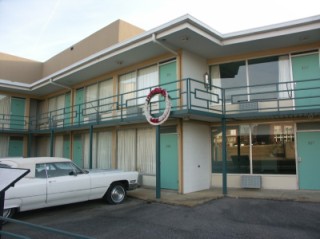









Fact 1: Dr. King got a C in public speaking at seminary school. Dr. King’s father, a preacher in Atlanta, thought his son was the best speaker he’d ever seen, before he went away to seminary school. But in his first year of seminary school in Chester, Pennsylvania, one of Dr. King’s professors gave him a C in a public speaking course! In his third and final year, Dr. King was valedictorian with straight A’s.
.
Fact 2: While at Crozer Theological Seminary, Dr. King was introduced to the teachings and philosophies of Mohandas Gandhi. Dr. King entered Crozer in the fall of 1948, after Gandhi was assassinated in January 1948 in India. In an interview, Dr. King said he attended a lecture from the president of Howard University given in Philadelphia about Gandhi, and he immediately became “deeply influenced” by the philosophy of nonviolence.
Fact 3: Dr. King was virtually unknown when he was named as spokesman for the Montgomery Bus Boycott in 1955. He had recently arrived in Alabama, and the leaders of the boycott, which was sparked by Rosa Parks’ decision to keep her bus seat, wanted a newcomer to be the public voice of the movement. There were concerns that some rivalries within the movement could present problems, and Dr. King was picked as a bipartisan leader.
Fact 4. Dr. King apparently improvised parts of the “I Have A Dream” speech in August 1963, including its title passage. Clarence B. Jones worked on the draft of the speech, which was being revised up to the time Dr. King took the podium. He says Dr. King’s remarks were up in the air about 12 hours before he spoke, and the “dream” reference wasn’t in the speech. Dr. King later added it live when singer Mahalia Jackson prompted him to speak about the “dream.” In June 1963, Dr. King had talked about his dream in a speech in Detroit.
Fact 5. When Dr. King was awarded the Nobel Peace Prize in 1964, at the time he was the youngest Peace Prize winner ever, at the age of 35. Currently, Tawakkol Karman of Yemen in the youngest winner on record; she was 32 when she won the prize in 2011. His acceptance speech in Norway included the famous statement, “I believe that unarmed truth and unconditional love will have the final word in reality. This is why right temporarily defeated is stronger than evil triumphant.”
NON VIOLENCE
With assistance from the Quaker group the American Friends Service Committeee, and inspired by Gandhi's success with non-violent activism, King visited Gandhi's birthplace in India in 1959. The trip to India affected King in a profound way, deepening his understanding of non-violent resistance and his commitment to America's struggle for civil rights. In a radio address made during his final evening in India, King reflected, "Since being in India, I am more convinced than ever before that the method of nonviolent resistance is the most potent weapon available to oppressed people in their struggle for justice and human dignity. In a real sense, Mahatma Gandhi embodied in his life certain universal principles that are inherent in the moral structure of the universe, and these principles are as inescapable as the law of gravitation."
No comments:
Post a Comment